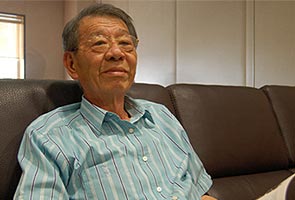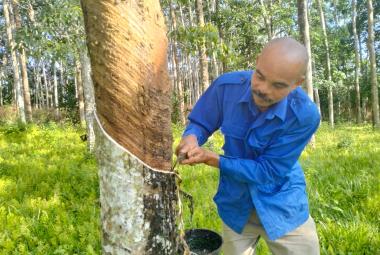By ZAIDI ISHAM ISMAIL
[email protected]
In 2000, a thunderous voice bellowed in the conference hall of a hotel in the city. It was the recognisable voice of the late Tun Dr Lim Keng Yaik who was lambasting the west for their anti palm oil campaigns.
The then Primary Industries Minister was reprimanding the westerners namely the American Soyabean Association for spreading lies about palm oil. When it comes to the defence of palm oil, Dr Lim was always passionate, always defensive.
"Palm oil is healthy and this claim is backed by years of research by our scientists at the Malaysian Palm Oil Board.
"Those who doubt me especially westerners, come let's debate with me. And don't forget that I am a medically trained doctor trained in the art of warfare at the University of Belfast."
Such was the fiery angst spewed by the late Dr Lim that few western anti-palm oil lobbyists dared to spar with him.

Between 1985 and 2005, when Dr Lim was at the helm of the country's palm oil industry, the commodity was seldom attacked by the foreign non-governmental organisations unlike today.
However, ever since his demise, the sector has been bombarded with a slew of anti palm oil campaigns.
This include the palm oil destroy the forests campaign, palm oil destructs the orang utan habitat smear campaign and the latest, Felda Global Ventures using forced labour and children at its estates by the US Customs and Border Protection.
To be frank, this will not be the last smear campaign hurled by parties not friendly with palm oil. This is simply because palm oil is the most efficent oil among the world's 16 edible oils and fats.
Here are a few ideas mooted by Dr Lim which the industry can consider to refresh and perhaps adopt one day:
1. Appoint a palm oil ambassador
The government might want to consider appointing an international oil palm ambassador to be stationed in the West which include in the US and in the European Union.
Since a huge chunk of negative publicity originates from the West, the oil palm ambassador's job is to repel all these smear campaigns full time.
2. Run a blitz of ad campaigns
One of the west's favourite smears on oil palm is : plantations destroy orangutans' habitats. Our orangutans are a protected species and they roam freely at conservation areas such as in Sepilok, Sabah.
Malaysia must go all out to dispel all this allegations by campaigning vigorously at all fronts on the goodness of palm oil. This includes social media, newspaper advertorials, TV and radio commercials and other mediums.
And these ads must be published in the West, not in local media. Only then it will have an impact.
3. Set up an oil palm university
Dr Lim had proposed that an oil palm university should be set up here with branches in the West. Only then can information about the commodity can be disseminated.
With proven university findings backed by years of research and development, the industry can dispel all the lies hurled at oil palm by western NGOs.
4. Invite the western media to our plantations
Malaysia must be more aggressive to counter all these allegations by campaigning overseas rather than inside the country.
There must be continuous media coverage to counter all the allegations against palm oil. This can be done via the media such as buying a slot on BBC or CNN and promote palm oil's goodness.
The industry should go on a media blitz to campaign in Europe and not in Malaysia on the virtues of palm oil. It will be more inpactful when the westerners see the goodness of palm oil aired on cable television in the comfort of their homes.
5. Work together with Indonesia
This aspect can't be stressed enough because Indonesia is the world's largest oil palm producer.
Malaysia which is the world's second largest palm oil producer should work together with Jakarta to find ways on how to swat away all these anti palm oil campaigns.
In fact both countries can appoint a joint oil palm ambassador. His job is just to counter all the negative campaigns launched by the anti palm oil lobbyists.
We can't work in isolation and we gain strength in numbers.

The government via the Plantations and Commodities Ministry, the Malaysian Palm Oil Board, the Malaysian Palm Oil Council and other related agencies must take heed over the matter.
Already there are reports that smallholders income are already impacted by the US Customs move to block FGV's crude palm oil from coming in.
Something must be done and perhaps the industry can adopt some of Dr Lim's legacies. The livelihoods of the country's two million smallholders and their families are at stake here. - DagangNews.com
The writer is former NST Business assistant editor










